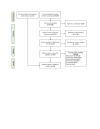Climate change, climate-related disasters and mental disorder in low- and middle-income countries: a scoping review
- PMID: 34649848
- PMCID: PMC8522671
- DOI: 10.1136/bmjopen-2021-051908
Climate change, climate-related disasters and mental disorder in low- and middle-income countries: a scoping review
Abstract
Introduction: Climate change and climate-related disasters adversely affect mental health. Low- and middle-income countries (LMICs) are particularly vulnerable to the impacts of climate change and climate-related disasters and often lack adequate mental healthcare infrastructure. We used the scoping review methodology to determine how exposure to climate change and climate-related disasters influences the presence of mental disorders among those living in LMICs. We also aimed to recognise existing gaps in this area of literature.
Methods: This review followed the Preferred Reporting Items for Systematic reviews and Meta-Analyses extension for Scoping Reviews checklist. To identify relevant studies, we searched five electronic databases (MEDLINE, EMBASE, Global Health, APA PsycInfo and Sociological Abstracts) from 1 January 2007 to 31 December 2019. We also searched the grey literature. Included studies had an adult-focused LMIC population, a climate change or climate-related disaster exposure and a mental disorder outcome. Relevant study information was extracted and synthesised.
Results: Fifty-eight studies were identified, most of which (n=48) employed a cross-sectional design. The most commonly studied exposure-outcome combinations were flood-related post-traumatic stress disorder (PTSD) (n=28), flood-related depression (n=15) and storm-related PTSD (n=13). The majority of studies identified a positive exposure-outcome association. However, few studies included a baseline or comparator (ie, unexposed) group, thereby limiting our understanding of the magnitude or nature of this association. There was also great heterogeneity in this literature, making studies difficult to pool or compare. Several research gaps were identified including the lack of longitudinal studies and non-uniformity of geographic coverage.
Conclusion: To our knowledge, this was the first scoping review to investigate the relationship between climate change and climate-related disaster exposures and mental disorder outcomes in LMICs. Our findings support the need for further research, but also highlight that mental health should be a priority within LMIC climate change policy considerations.
Keywords: epidemiology; mental health; public health.
© Author(s) (or their employer(s)) 2021. Re-use permitted under CC BY-NC. No commercial re-use. See rights and permissions. Published by BMJ.
Conflict of interest statement
Competing interests: None declared.
Figures


References
-
- Intergovernmental Panel on Climate Change (CH) . Climate change 2014: synthesis report. contribution of working groups I, II and III to the fifth assessment report of the Intergovernmental panel on climate change. Geneva, CH: Intergovernmental Panel on Climate Change, 2014. https://www.ipcc.ch/site/assets/uploads/2018/02/SYR_AR5_FINAL_full.pdf
Publication types
MeSH terms
Grants and funding
LinkOut - more resources
Full Text Sources
Medical
